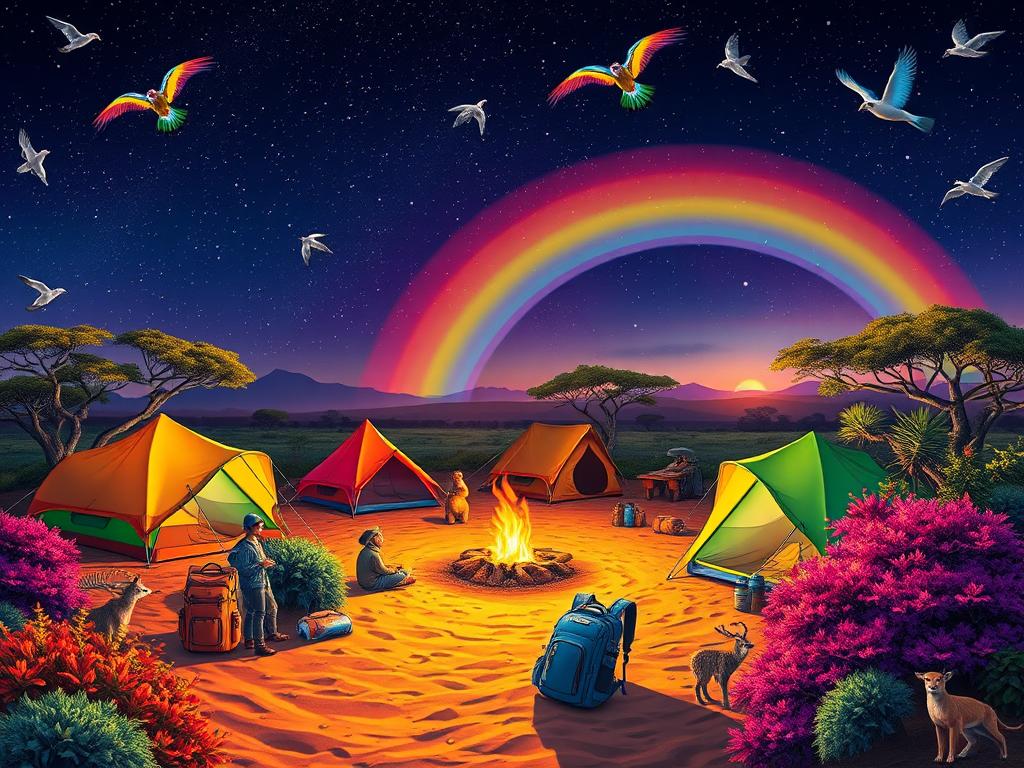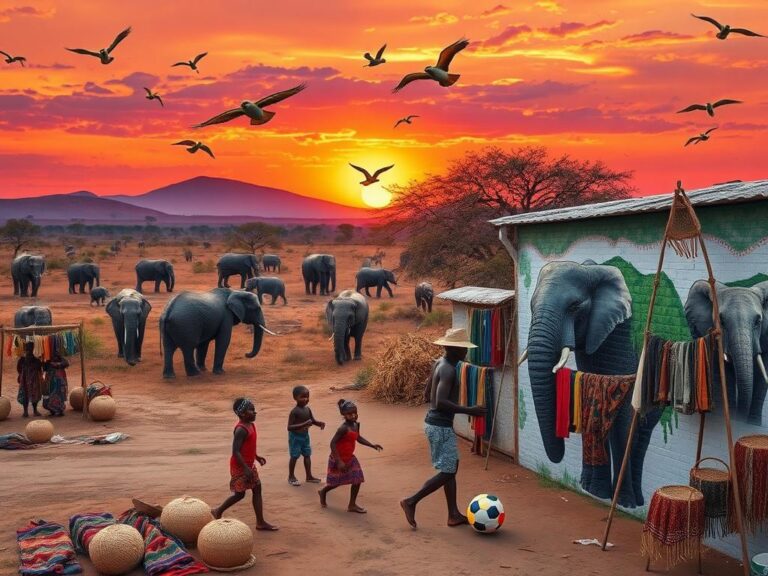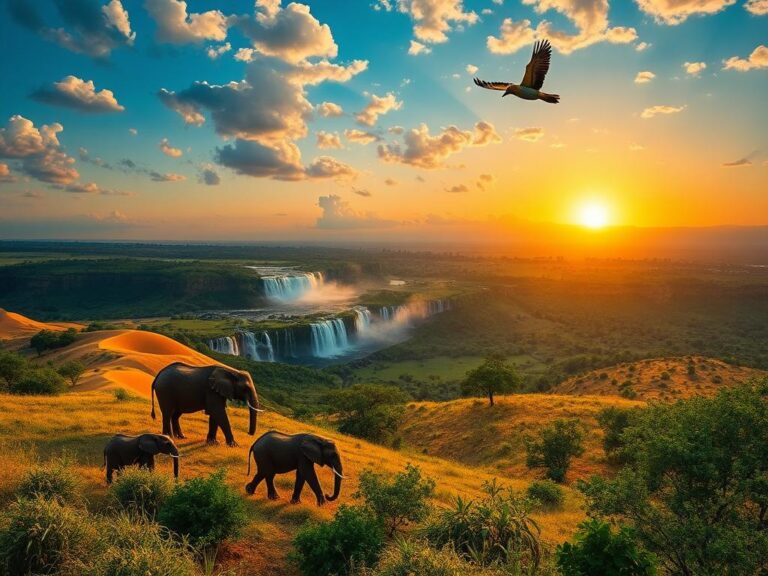
Safari Packing Essentials: Your Guide to a Hassle-Free Adventure
Safari Packing Essentials: Your Guide to a Hassle-Free Adventure
Safari packing essentials are vital for ensuring you enjoy a smooth and memorable adventure in the wild. Every safari presents a unique opportunity to connect with nature, observe wildlife, and experience the thrill of the great outdoors. However, packing the right items can mitigate unexpected challenges, keeping you comfortable and safe during your journey.
This article covers the top 100 safari packing essentials that you should consider before embarking on your journey. Whether you’re a first-timer or an experienced traveler, this comprehensive list will guide you in making informed decisions on what to bring.
From gear to personal items, we’ll specifically highlight the essentials that can make an enormous difference in your safari experience. You’ll learn about durable backpacks, hydration systems, and everything in between. Buckle up as we dive into the must-haves for an amazing safari adventure!
1. The Importance of Choosing the Right Backpack
Your backpack is your best friend during a safari. It’s essential to choose a durable backpack that can handle rugged terrain while comfortably carrying all your essentials. Look for features such as padded shoulder straps, a hip belt for support, and multiple compartments for organization.
Experts recommend investing in a quality brand with a solid reputation for outdoor gear. Consider options like Osprey, Deuter, and North Face. Each brand has its unique features designed for adventurers. For example, Osprey’s Antigravity series distributes weight more evenly, which is particularly beneficial if you’re hiking long distances.
2. Staying Hydrated: A Hydration Pack is Key
Staying hydrated is crucial during a safari, especially in hot climates. A hydration pack allows you easy access to water while hiking. You can sip conveniently from a straw as you walk, meaning you won’t have to stop constantly to drink.
Look for models that hold at least 2 liters of water. Some even come with extra storage for essentials like snacks and a first aid kit. Golite and Camelbak are excellent choices for hydration packs known for their comfort and functionality.
3. Shelter from the Elements: Lightweight Camping Tent
A lightweight camping tent is essential for those opting for a camping safari. It should be compact, easy to set up, and protective from weather elements. A good tent will have rainfly and durable materials to withstand unexpected storms.
Brands like REI and MSR offer tents that are both lightweight and spacious. Their designs emphasize ventilation, which is particularly valuable in hot climates. Whether you’re camping in the Serengeti or Kruger National Park, your tent will be your sanctuary after a long day of adventures.
4. Comfort at Night: The Sleeping Bag
Having a suitable sleeping bag is paramount for comfort during chilly nights. Choose one that is suited for the temperature range of your safari destination. A higher quality sleeping bag will offer a balance of weight and insulation.
Sleeping bags rated for 20 degrees Fahrenheit can suffice for most safari environments. Brands like Coleman and Teton Sports offer sleeping bags designed for outdoor conditions, ensuring warmth and comfort.
5. Essential Hydration: Insulated Water Bottle
An insulated water bottle will keep your beverages cool during the day and warm at night. Look for bottles made from stainless steel, as they tend to be more durable and environmentally friendly. A great option is the Hydro Flask, which is known for its temperature retention.
Remember to refill regularly and stay hydrated as safaris can be physically demanding. Having an insulated bottle may also encourage you to drink more water, lessening the chances of dehydration.
6. Capturing the Experience: Binoculars
When it comes to spotting wildlife, a pair of good binoculars can enhance your experience significantly. They allow you to observe distant animals without intruding on their space.
Choose binoculars with at least 8x magnification, which offers a perfect balance of power and stability. Zeiss and Nikon provide reputable options that are both durable and offer excellent optics.
7. The Importance of a Good Camera
A camera is vital for capturing the stunning landscapes and breathtaking wildlife you’ll encounter. While professional-level DSLRs provide high-quality images, even a quality smartphone camera can suffice.
Don’t forget to bring extra batteries, memory cards, and lens cleaning supplies. You’ll want to capture every moment, so staying prepared is essential. If you decide to invest in a camera, consider models designed for wildlife photography, like Canon’s EOS series.
8. Protecting Your Skin: Sunscreen
The sun can be unforgiving in safari destinations, making high SPF sunscreen a must-have. Apply a water-resistant, broad-spectrum sunscreen to protect against skin damage caused by UV rays.
Experts suggest using a sunscreen with at least SPF 30. Reapply every two hours, especially if you’re sweating or swimming. Remember that both your skin and your lips need protection; consider lip balm with SPF as well.
9. A Shield Against Bites: Insect Repellent
No safari is complete without insect repellent. A good repellent containing DEET will keep pesky mosquitoes and other bugs at bay. Mosquitoes are more than just an annoyance; they can also carry diseases.
Foremost Outdoors emphasizes the importance of applying repellent to your skin and clothing. Additionally, consider wearing light-colored clothing, which insects are less attracted to.
10. Be Prepared: First Aid Kit
Accidents can happen during a safari, so a well-stocked first aid kit is a crucial item. Your kit should include various bandages, antiseptic wipes, and any personal medications.
List your most common ailments to ensure you’ve prepared adequately. If traveling to more remote areas, it can be worth investing in a more comprehensive kit that serves common outdoor needs.
11. The Right Footwear: Hiking Boots
Sturdy, comfortable footwear is critical for roaming the wild. A pair of high-quality hiking boots will provide the support you need on uneven terrain. Look for waterproof features and good insulation for additional comfort.
Consider brands like Salomon or Merrell, which are renowned for their durable and comfortable options ideal for rugged lifestyles.
12. Dressing for Success: Lightweight Clothing
Your choice of clothing can make a tremendous difference when it comes to comfort. Opt for lightweight, breathable, moisture-wicking fabrics that dry quickly. This will help keep you cool during hot days and warm in cooler evenings.
Layering is critical; consider long-sleeved shirts and light jackets that can adapt to changing weather. Opt for neutral colors to blend into the wildlife and avoid startling animals.
Bonus Packing Tips
Here are a few more sneaky tips that can make your experience even better:
- Binocular Harness: A harness can help you keep binoculars secure and easily accessible.
- Air Travel Considerations: Ensure your travel documents, including passports and visas, are all in one place to avoid a last-minute scramble.
- Snacks: Pack energy-rich snacks like protein bars and trail mix to curb hunger during long outings.
- Wet Wipes: These can be a luxury during long days, providing the ability to freshen up when water isn’t readily available.
- Travel Journal: Documenting your experiences will allow you to reflect on your adventures for years to come.
Conclusion: Be Prepared for Any Adventure
Embarking on a safari is an unparalleled adventure that offers the chance to experience wild beauty firsthand.
Having the right packing essentials is critical for ensuring comfort, safety, and enjoyment throughout your journey. By considering items like a durable backpack, hydration pack, and essential clothing, you’ll be well-equipped to embrace the wilderness.
As you prepare for your trip, remember to assess your personal needs and adapt the list according to your destination.
With this comprehensive list of 100 safari packing essentials, you’re well-prepared for an unforgettable adventure in the wild!
FAQ
What is the most important item to pack for a safari?
The most important item to pack for a safari can vary based on personal needs, but generally, a durable backpack and a reliable hydration pack are crucial.
Is it necessary to have a first aid kit for a safari?
Yes, a well-stocked first aid kit is essential for a safari to address any minor injuries or ailments that may arise.
What type of clothing should I wear on safari?
It’s best to wear lightweight, breathable clothing in neutral colors that dry quickly and can be layered for temperature changes. Avoid bright colors and patterns to not startle wildlife.
How can I protect myself from mosquitoes during a safari?
Using insect repellent containing DEET, wearing long sleeves, and staying in screened or enclosed areas can help protect against mosquitoes.
Should I bring snacks on my safari?
Yes, energy-rich snacks like protein bars and dried fruits will keep your energy up while you’re out exploring.
If you have any thoughts, experiences, or questions about safari packing essentials, feel free to share them in the comments below.


